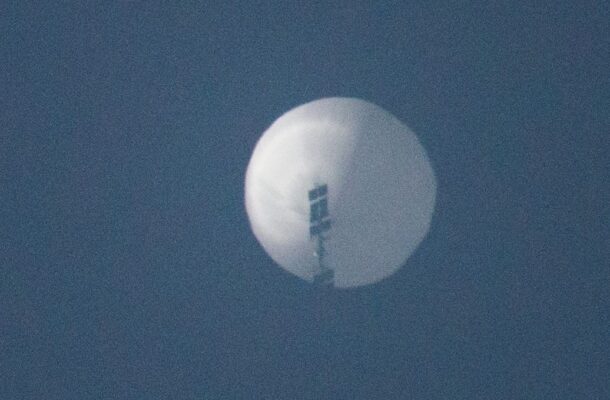The curious case of the Chinese spy balloon

I generally have little interest in politics mainly because I have great difficulty in understanding the logic behind politician’s actions. However, in the instance of the spy balloons in the news recently, the statements by the US government do appear reasonable.
A device that large is certainly not a weather balloon and one wonders why private enterprise would go to such expense in order to launch it around the world when so much data is available via satellites, shipping and long-range aircraft. The balloon appears to have been manoeuvrable to a certain extent which shows that its position was not entirely accidental.
The statement put out by the Chinese government is unbelievable in that the Chinese are (rightly) very conscious of their sovereignty and make a lot of noise when they believe their borders have been breached, so the claim that many US spy balloons have been flown over their territory unchallenged can safely be dismissed.
This leads us to wonder what it is that the Chinese are attempting to achieve. A balloon carrying a device the size of a small bus is hardly invisible in today’s technology. When cameras in satellites can identify the number-plates on cars, those on balloons which fly much lower can obtain a lot of detail about ground-based equipment or even determine secret entrances to hidden military bases like those under mountain ranges.
It is possible that because the majority of the population of China have been brainwashed by government propaganda without the benefit of a free press, their government believes that the rest of us in the free world are equally susceptible to believing their statements.
I would be very surprised if this is so simply because their government must have embassy feedback regarding what the world thinks – quite apart from reading news from the media on the internet. The Chinese government is not stupid but it is sometimes difficult to understand why it is that they take action the way they do.

Alan Stevenson spent four years in the Royal Australian Navy; four years at a seminary in Brisbane and the rest of his life in computers as an operator, programmer and systems analyst. His interests include popular science, travel, philosophy and writing for Open Forum.













